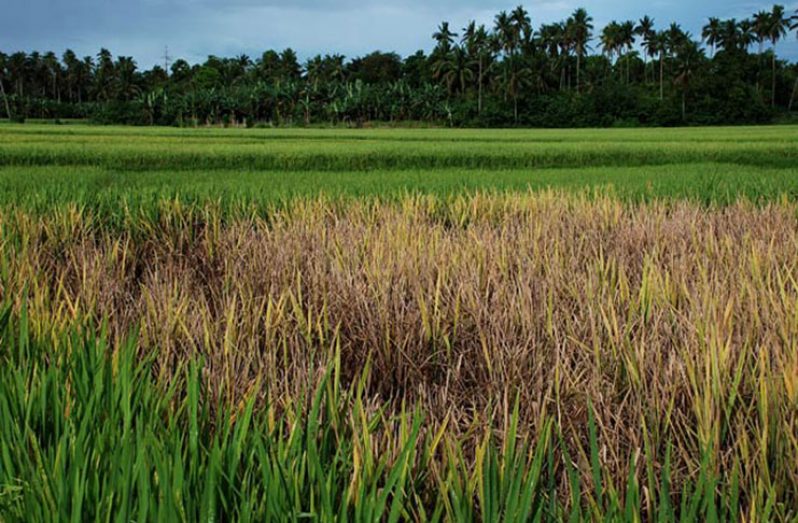THE Upper Corentyne Chamber of Commerce and the Central Corentyne Chamber of Commerce believe that mechanisation may be the answer to save the rice industry, which has been dogged by paddy bug infestations, among others problems.
A release from the chambers says over the past decade, rice farmers have been lobbying the authorities to move towards mechanisation, pointing out that if this avenue is not pursued, the industry would eventually “shrink” and become “irrelevant as an earner of foreign exchange to Guyana.”
Noting that emigration and alternative jobs have already taken effect, the chambers said mechanisation is needed to replace labour-intensive agronomic processes.
“The picture is becoming clearer. Old ways will have to give way to the new,” the chambers contended, noting that aside from meeting the labour shortage, mechanisation is now seen by rice-growers as a “saviour to the industry.”
Paddy bug infestation has been creating havoc in the industry, and according to the chambers, the best way to counter this problem is by aerial spraying.
Rice magnate Nand Persaud and Company Limited at Number 36 Village, Corentyne, Berbice has long argued for mechanisation, particular in battling paddy bug infestation.
Paddy bug infestation is a recurring problem that undermines the viability of the industry and the marketability of rice.
According to the chambers, many farmers operate on a thin margin and the infestation has seen acreage cultivated drop to 58,000 from 61,000 acres last year.
Mathematically, the chambers said that with a conservative estimate of only 12 per cent loss to paddy bug infestation, farmers in Region Six stand to lose approximately $1.3 billion this year.
“Each year losses of labour, new diseases and pests and rising production costs see a reduction of acreage in cultivation,” the chambers said.
In addition, they cited poor dams and little farm extension as contributing factors.
“Definitely, we have the means to improve the rice industry, but what is lacking is the policy,” the chambers said, as they invited the authorities to tour the rice- producing areas in the region to see the situation first-hand.
Mechanisation will vanquish paddy pests –say Berbice business chambers
SHARE THIS ARTICLE :
Facebook
Twitter
WhatsApp




.jpg)










